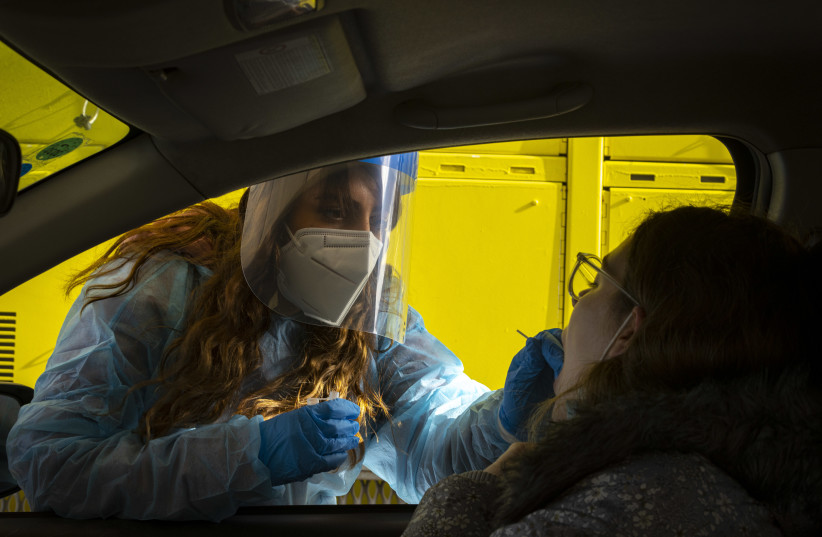The third COVID-19 Pfizer-BioNTech vaccine significantly boosts effectiveness against infection, a study published on Monday by a group of Israeli researchers from Sheba Medical Center and Tel Aviv University has found.
How was the research conducted?
The peer-reviewed study, published in the scientific journal Nature Immunology, found that the estimated vaccine effectiveness of the third dose against PCR-confirmed infection, regardless of symptoms, stood at 85.6% compared to two doses.
In order to analyze the effectiveness of the third vaccine dose, the researchers administered the jab to 12,290 healthcare workers who were not previously infected with COVID-19 and were inoculated with the first and second jab.
How effective is the third dose?
Results show that out of the 12,290 participants, 407 healthcare workers (3.3%) tested positive for COVID-19 in a PCR test.
Two participants required hospitalization due to symptoms suffered following receiving the third vaccine dose. One who suffered from migraine with sensory loss was hospitalized for two days and the other had unexplained hyponatremia and was discharged from the hospital after four days.

The vast majority of participants reported feeling local reactions to the administration of the third dose, with females under the age of 60 reporting more symptoms than any other age or gender group in the study. Younger women also reported more systemic reactions than other groups, including fatigue, myalgia and fever.
The third dose also substantially increased antibody levels compared to the second dose, whose effects diminish five to six months after inoculation.
Data gathered as part of the study demonstrated that while the increase of antibodies is relatively small at around 1.7-fold, a six-fold increase in neutralizing antibody titers, which bind pathogens and prevent them from spreading infection, was recorded in comparison with the second vaccine dose.
The study found that the third dose-generated antibodies are correlated with the risk of infection against the Delta variant of the coronavirus.
